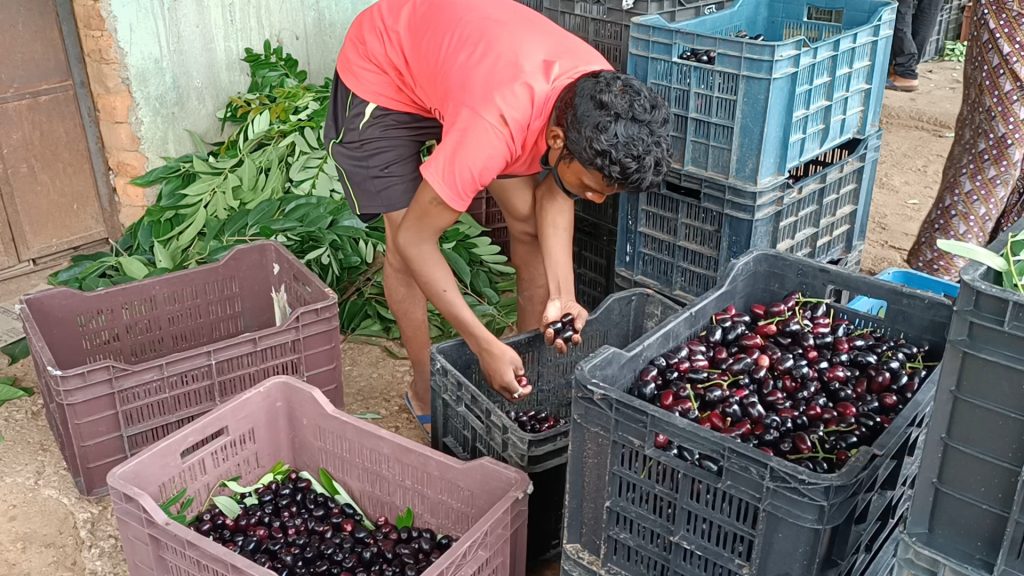Keonjhar: Indian blackberry or ‘Jamu Koli’ grown in Keonjhar district is in high demand in other states like West Bengal, Bihar and Jharkhand among others. The monsoon fruit has many takers in those states and in some cities in Odisha not because of its tangy taste but because of its medicinal properties to cure diabetes.
This pulpy fruit is available in the month of June. Tribal people, both males and females of all ages, collect them from trees in their backyards, villages, jungles and by roadside. Traders from neighbouring states come to this district to buy these fruits. Tribal people can also be seen selling them in leaf bowls in markets.
According to traders camping in the district, Keonjhar’s blackberries are sold in other states at the price of prized grapes. People suffering from diabetes and stomach problems are the main customers of these fruits.
They buy a basketful or bagful of these fruits for Rs 100 to Rs150. Then they separate the good ones, pack them in containers and then send them in trucks to other states. From this, they earn a huge profit.
“Every year we supply jamuns from this district to other states. But the situation has been different for two years now because of Covid-19 outbreak. Our collection has come down drastically due to the Covid-19 induced lockdown and shutdown,” said Murali Ram, a trader from Jharkhand, presently camping in the district.
At the same time, poor tribal people who collect these fruits painstakingly seldom get the price for the labour involved. In the absence of a proper market and storage facility in the district, they are left with no choice but to sell the fruits to traders at whatever price they offer to them.
Additional district magistrate Santosh Nayak admitted that there was no market facility for this seasonal fruit in the district. Tribal people earn their livelihood by selling minor forest produces and their rights are protected under law.
